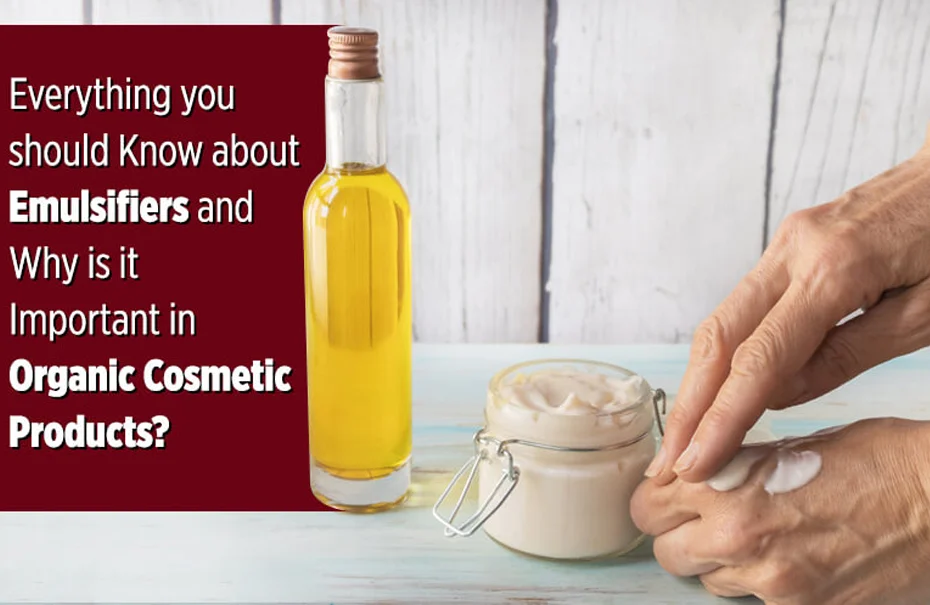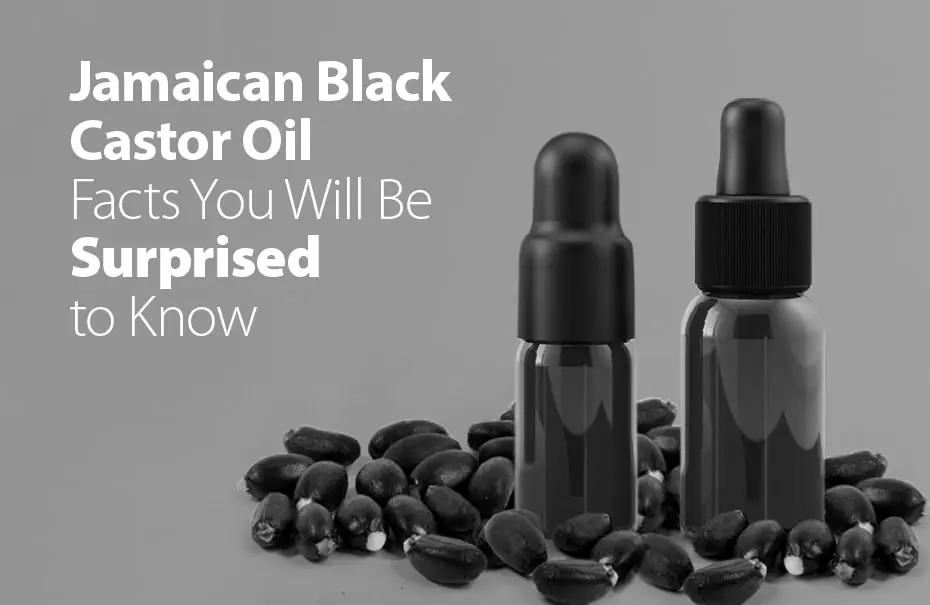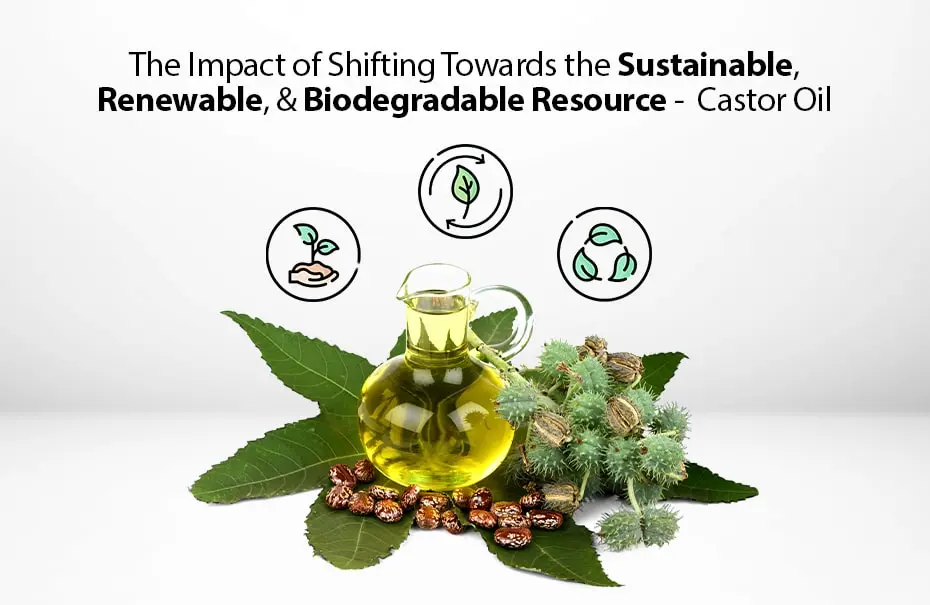Everything you should Know about Emulsifiers and Why is it Important in Organic Cosmetic Products?

Natural emulsifiers are known as one of the most adaptable forms of ingredients used to create a wide range of skincare, hair care and personal care formulations. Emulsifier is a blend of water and oil that are mixed together. The mixture created is a homogeneous blend with equal proportions of the constituents.
There are two major categories of emulsifiers which are as follows:
- Oil in Water ( O/W)
- Water in Oil (W/O)
The oil in water (O/W) emulsifier is droplets of oil suspended in aqueous base. This type of emulsion is more of a liquid form, quite similar to milk or a body lotion. On the other hand, a water in oil (W/O) emulsifier has ultra fine water droplets in fatty base ingredients. These emulsions are quite thick and greasy in nature.
Emulsifier in Cosmetic Industries
The cosmetic industry that includes creams, lotions and serums are nothing else but emulsions. The cosmetic products require ingredients like essential oil and water to be mixed, which cannot be achieved without an emulsion.
Emulsifiers have been used in the cosmetic industry for a very long time. The first emulsifier used in the cosmetic industry was probably the usage of beeswax by the Ancient Greeks, which till present is used due to its emulsifying and hydrating properties. Both the types of emulsions; oil in water and water in oil are very essential in the cosmetic industry. For instance, the water in oil emulsions are used in night creams, body lotion and sunscreen. Oil in water emulsions are mostly used for lightweight cosmetic products. The emulsifiers should be used with great care. There are chances that some of them may cause irritation when applied.
Things to Keep in Mind before choosing an Emulsifier
Before choosing an emulsifier, there are certain points that one should consider. We have prepared an extensive list on the key points you could go through before considering which emulsifier suits you the best.
1. Natural vs Synthetic Emulsifier
Natural has a wide scope of meaning, hence it can be quite confusing. Even the most natural emulsifier like lecithin needs to go through processes like extraction, separation, and processing until and unless it becomes the lecithin that we apply. Similarly, other emulsifiers such as ‘cetearyl olivate’ which is extracted from olive oil has to go through chemical reactions.
However, there are some emulsifiers that cannot be categorised in a natural or organic group. Few prominent synthetic emulsifiers are derivatives of two broad categories which are Polyethylene Glycol (PEG) or Polypropylene Glycol (PPG). These contain the whole tween range and polysorbate along with other emulsifiers.
2. Certification
Not all the emulsifiers come with a certification. This is mainly due to the high costs of certification, which eventually affects what the end users i.e., consumers are going to pay. The supplier should inform you regarding your emulsifier’s certification and if it is organically certified or not. If you are looking for a certified finished product, then this factor must be considered.
3. Hydrophilic Lipophilic Balance
Hydrophilic-Lipophilic Balance (HLB) of emulsifiers helps determine whether a prepared emulsion is a water-in-oil (W/O) or an oil-in-water (O/W) emulsion. Hydrophilic Lipophilic Balance was brought into existence for PEG based ingredients. With time, PEG-free emulsifiers which are especially present in organic and natural cosmetics are mostly made through emulsion of plant oils. This means that no paraffins or silicone oils are needed to be emulsified and the HBL system is not quite essential for them.
However, if the HBL is mentioned, you should check the following details. Roughly if the emulsifier is around 4, it is water in oil emulsion and if it is around 11 then it is oil in water emulsion.
4. Optimum Oil Phase Concentration
It is mostly observed that emulsifiers perform the best in a certain range of oil phases. Some emulsifiers work best in the oil range of three to ten percent. Others quite perform well in the medium oil range, which is fifteen to twenty-five percent. Some emulsifiers, majorly water- in- oil work best in high oil concentration. While choosing an emulsifier you must make sure that even if your emulsion works in lower concentration oil it may probably not be the best choice for another range of oil phases.
5. pH Range
Every emulsifier has a stability pH range. If the emulsion deviates from that pH range, it can turn unstable following changes in appearance, texture and viscosity. Before preserving the emulsions, it is important to know the product’s pH level. For example, if the emulsifier works best at a pH range of 6-7, but you are using a weak preservative system with pH lower than 4.5, then your emulsifier will not perform properly. In such conditions, you should either change the preservative or the emulsifier.
Natural Emulsifier
A versatile range of emulsifiers are available in the market. Here is the list of few natural emulsifiers that you can consider adding in your daily skincare.
1. Beeswax
For centuries, Beeswax has been used for skin care. Along with its healing and softening properties, it also works well as an emulsifier. It works best when used in oil- in-water emulsions and can also make a base for creams when used with other emulsifiers.
2. Candelilla Wax
Candelilla wax is a plant based wax and a suitable vegan alternative to Beeswax. It is odourless, has skin conditioning properties and is rich in nutrients. While most of the waxes work well with lighter formations, Candeilla is well suited for denser, water-in- oil formulations. Candelilla is used in making lotions for a soft and supple skin.
3. Turkey Red Oil
Turkey Red Oil is one of the many castor oil products which is also known as sulphonated castor oil. It is widely used as an emulsifier for bath oils as it mixes well with water. Due to its medium viscosity, it can be used in different recipes of bath oils or even shampoos. The oil has great moisturizing ability, leaving a soft skin post application.
4. Lecithin
Lecithin is found in various plant and animal products like corn, egg whites, soybeans, etc. Although Lecithin combines with oil, it is highly effective in water based emulsions as well. Due to its humectant property, it can draw moisture from the air in the surrounding and deposit it on the skin. It also helps in better penetration of other cosmetic products and can be used for anti-aging products for dry skin.



